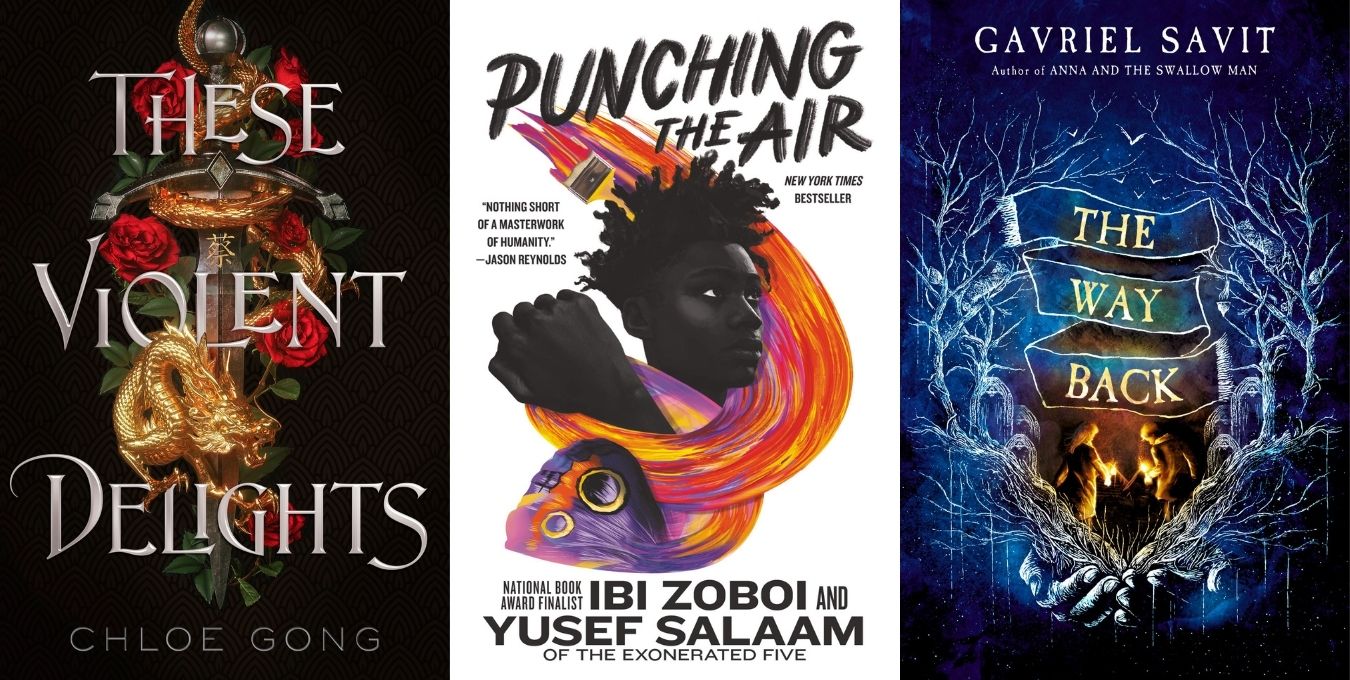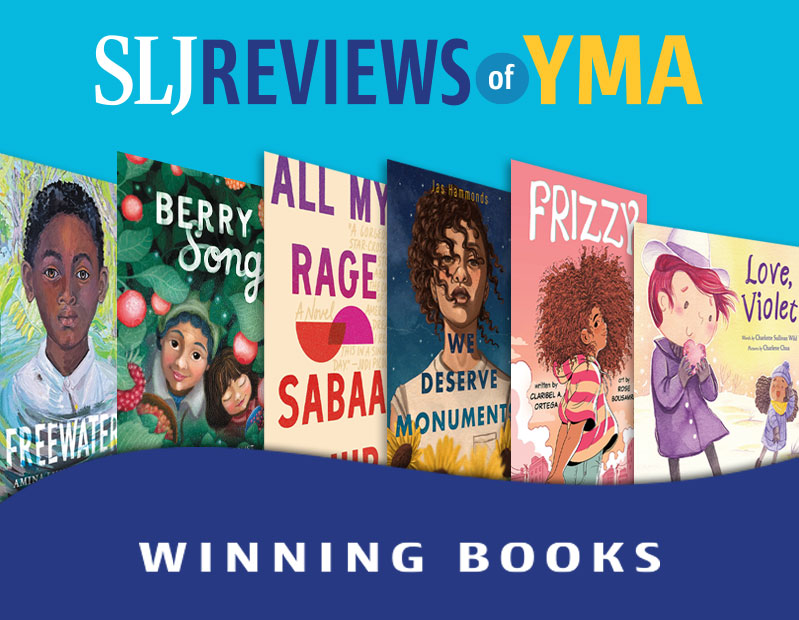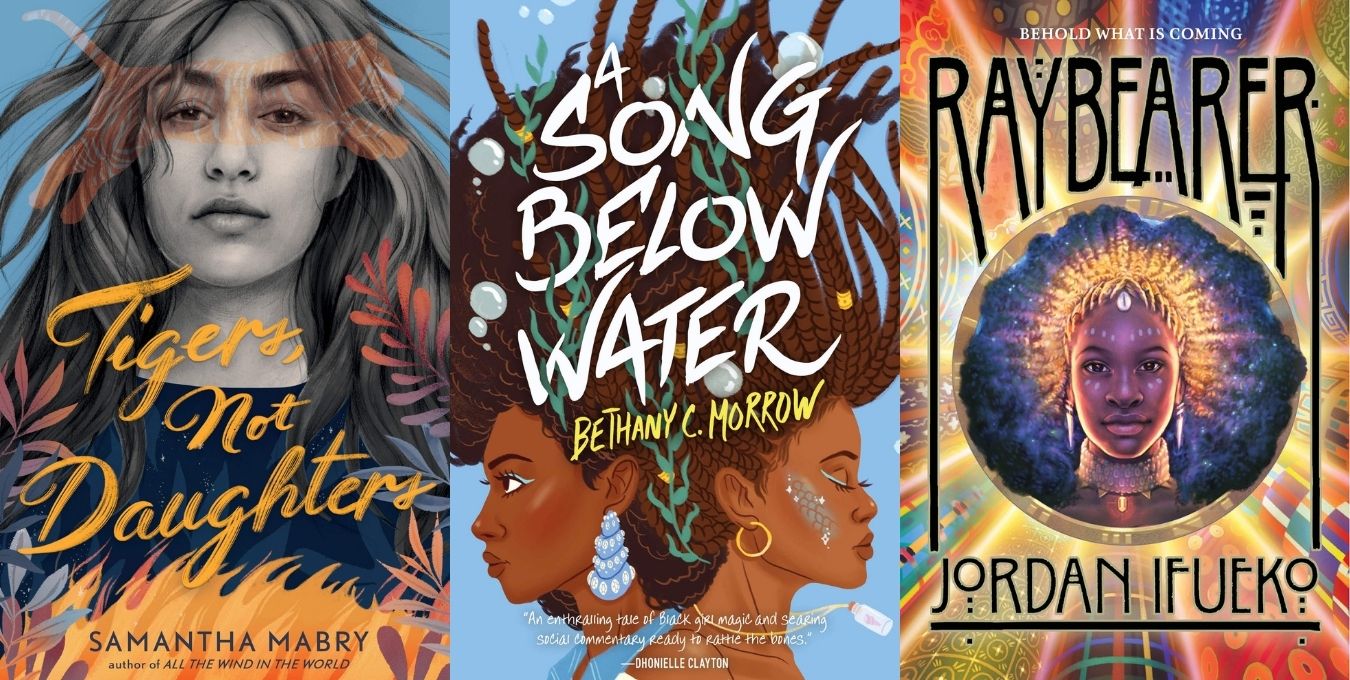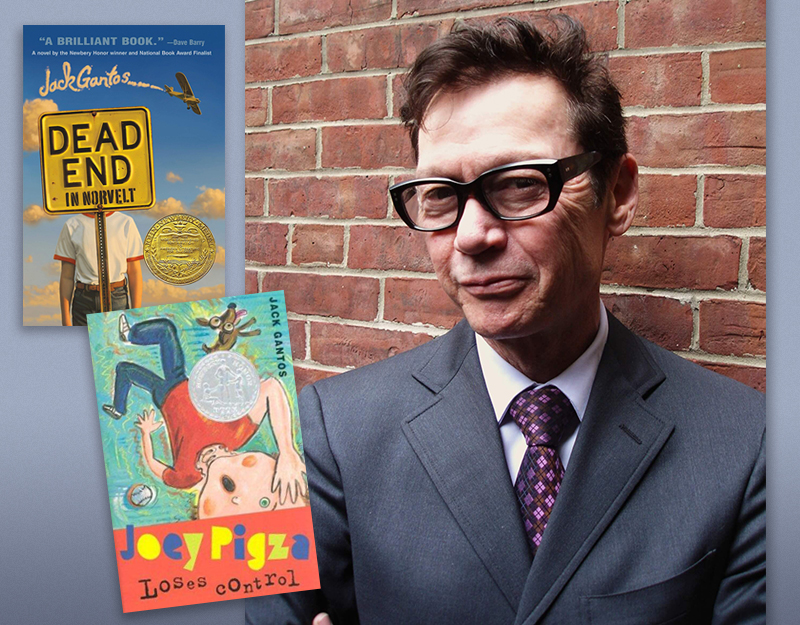Win a Newbery in 150 Pages or Less
 Our Heavy Medal Finalist list includes ten conventional fiction books (assuming SNOW LANE and JUST LIKE JACKIE are added…that decision is in process). They’re diverse in content and style, but not so much in length. They average 264 pages. Almost all are in the 200-300 page range (SNOW LANE is 197 and SWEEP and THE PARKER INHERITANCE top 300). And that’s a typical range for a good number of Newbery titles. It’s rare that a chapter book under 150 pages wins the Medal: most recent examples are THE HIGHER POWER OF LUCKY (134 pages), A SINGLE SHARD (152…close enough), A YEAR DOWN YONDER (130), THE MIDWIFE’S APPRENTICE (122), and MISSING MAY (89!). Those are all pretty sophisticated titles, though, more for the 4th grade and up reader, rather than those just making the jump from early readers. In fact, I was surprised to see the page count was so low on all of these, since the books are so rich and complex. Those are some good writers! But what about shorter books? What does a 150 page book, with larger print and double-spaced type have to be to earn Newbery consideration? Here are a few notable 2018 chapter books that come in close to that 100 – 150 page range. With a limited number of words, the authors have to be artful and efficient to create plots, characters and themes that resonate with readers. Is there enough in these pages to earn notice?
Our Heavy Medal Finalist list includes ten conventional fiction books (assuming SNOW LANE and JUST LIKE JACKIE are added…that decision is in process). They’re diverse in content and style, but not so much in length. They average 264 pages. Almost all are in the 200-300 page range (SNOW LANE is 197 and SWEEP and THE PARKER INHERITANCE top 300). And that’s a typical range for a good number of Newbery titles. It’s rare that a chapter book under 150 pages wins the Medal: most recent examples are THE HIGHER POWER OF LUCKY (134 pages), A SINGLE SHARD (152…close enough), A YEAR DOWN YONDER (130), THE MIDWIFE’S APPRENTICE (122), and MISSING MAY (89!). Those are all pretty sophisticated titles, though, more for the 4th grade and up reader, rather than those just making the jump from early readers. In fact, I was surprised to see the page count was so low on all of these, since the books are so rich and complex. Those are some good writers! But what about shorter books? What does a 150 page book, with larger print and double-spaced type have to be to earn Newbery consideration? Here are a few notable 2018 chapter books that come in close to that 100 – 150 page range. With a limited number of words, the authors have to be artful and efficient to create plots, characters and themes that resonate with readers. Is there enough in these pages to earn notice?
SAVING WINSLOW by Sharon Creech, (who won a Newbery Medal and an Honor for longer works) received two Heavy Medal nominations. With 49 short chapters, most just two or three pages, it’s just right for kids new to chapter books. The story centers around Louie’s effort to save the newborn mini donkey he’s adopted. But it’s also about Louie’s sense of self-worth, and the way he misses both his older brother who’s joined the army and his three-years-older best friend, who’s drifting away from him, and a tentative new friendship with a girl who also appreciates the donkey. Louie identifies with Winslow, and that comes through effectively, as when he’s getting to know Nora, a girl who seems pushy to Louie at first:
ADVERTISEMENT
ADVERTISEMENT
Nora looked Louie in the eye. “Our brother was born two months early – ”
“So was I!” Louie said. “I was a pitiful, struggling, scrawny thing.”
Nora touched Louie’s arm with one finger. “But you made it.”
“Oh.” It was surprising, Louie thought, how much one simple sentence could affect your opinion of someone. (31)
There’s a lot packed into this short little book. Even the closing line is economical, but powerful: Louie, after letting his donkey go to his uncle’s farm, leaves him a note that neatly echoes the last line of his brother’s postcards: “Remember me.”
 DRAGONS IN A BAG by Zetta Elliott also received two HM nominations. It’s a short fantasy with magical elements that aren’t too complex for younger readers: a magical witch named Ma, three baby dragons, time travel. The story moves quickly, with a quick trip to the Jurassic Era and the introduction of several characters who help Jax on his quest to save Ma and the dragons. Along the way we learn more about the boy’s family and about the nature of magic. It’s the first book in the series, so the plot feels kind of unfinished: Ma returns home, but an escaped dragon is still at large in Brooklyn. The backstory about the nature of magic and the conflict within Jax’s family about accepting or rejecting magic is needed for the series set up, but a little heavily weighted when we look at just this book. I think this will be popular, and it’s great to have a fantasy for young readers with African-American characters, but I’m not sure I see Newbery potential in this one.
DRAGONS IN A BAG by Zetta Elliott also received two HM nominations. It’s a short fantasy with magical elements that aren’t too complex for younger readers: a magical witch named Ma, three baby dragons, time travel. The story moves quickly, with a quick trip to the Jurassic Era and the introduction of several characters who help Jax on his quest to save Ma and the dragons. Along the way we learn more about the boy’s family and about the nature of magic. It’s the first book in the series, so the plot feels kind of unfinished: Ma returns home, but an escaped dragon is still at large in Brooklyn. The backstory about the nature of magic and the conflict within Jax’s family about accepting or rejecting magic is needed for the series set up, but a little heavily weighted when we look at just this book. I think this will be popular, and it’s great to have a fantasy for young readers with African-American characters, but I’m not sure I see Newbery potential in this one.

FINDING LANGSTON by Lesa Cline-Ransome received just one Heavy Medal nomination, but it’s appeared on several Best of the Year lists. It’s short, but definitely for an older readership than SAVING WINSLOW or DRAGONS IN A BAG. In twenty chapters and just over 100 pages, Cline-Ransome develops a powerful story with a distinct and memorable protagonist. Langston’s first person narration captures the harshness and the beauty of his life in 1946 Chicago:
Daddy ain’t the best company, but ain’t nothing worse than being alone. Not used to coming home to an empty house. The smell of last night’s dinner and Daddy’s sweaty work clothes hanging in the air. Every day I open the door, it takes just a minute ‘fore I remember I won’t hear Mama getting supper started, or her her humming – His eye is on the sparrow, and I know He watches me – and just a little bit longer to remember I won’t see Mama ever again. [I’ve only got the e-book, so can’t cite a page number]
Okay, I guess that example is just the harshness. And the first few chapters are evocative, but pretty grim. It’s when Langston enters that the public library that things get a little hopeful. The solace and inspiration he finds within the building and in the poetry he reads is powerful and sometimes moving. His narrative voice is eloquent and insightful, but still feels like it’s conveying the thoughts of this particular eleven-year-old. As an adult reader, I found the presentation of themes a little too blatant at times, but this might not be an issue for kids. Like when Lymon, the bully, mockingly reads a phrase from a poem, and the passage happens to be the exact same one that Langston just read in one of his mother’s letters. Or when his new friend Clem so elegantly sums up what poetry means to Langston:
“So the poetry you read is a way of putting all the things you feel on the inside on the outside.”
“That’s about it.” Between all he knows about the library and getting my mixed-up words, Clem is a lot smarter than I thought.
Still, it’s an impressive book, with a strong sense of history, convincing family relationships, and an inspiring look at the power of books and poetry. And she did it all in 107 pages!
Are other Newbery possibilities out there for this in-between level of fiction?
Filed under: Uncategorized
About Steven Engelfried
Steven Engelfried was the Library Services Manager at the Wilsonville Public Library in Oregon until he retired in 2022 after 35 years as a full-time librarian. He served on the 2010 Newbery committee, chaired the 2013 Newbery Committee, and also served on the 2002 Caldecott committee. You can reach him at sengelfried@yahoo.com.
ADVERTISEMENT
ADVERTISEMENT
SLJ Blog Network
One Star Review, Guess Who? (#202)
This Q&A is Going Exactly As Planned: A Talk with Tao Nyeu About Her Latest Book
Exclusive: Giant Magical Otters Invade New Hex Vet Graphic Novel | News
Parsing Religion in Public Schools
Take Five: LGBTQIA+ Middle Grade Novels
ADVERTISEMENT








I liked SAVING WINSLOW but as an adult reader. I think it may be more psychologically sophisticated, maybe too much so, than its length/reading level suggests. Even in the excerpt you gave, Steven, there’s what’s said in dialogue, and there’s what’s implied, and it seems to me the emotional development of Louie and Nora’s relationship is largely implied. Here’s another example. Nora at one point says, “I bet you have to get rid of him. He will never be this free and happy again. He will probably get sick and die of sadness” (79). I don’t really remember, but I feel like when I was a young reader, taking things more at face value, I would have had little appreciation for all that goes into such a statement, one that is both sort of meant and not meant. And so I think the impression I would have gotten of Nora as a young reader would not have been Creech’s “intended” one, which I think requires a good deal of reading between the lines.
I appreciate that distinction between what’s “implied” and what’s “said in dialogue.” There could be more sophisticated readers within that 2nd-3rd grade readership who will grasp the implied emotions…but not sure. Another angle could be that Creech is writing for a slightly older audience than Urban, but I don’t think that really holds up, since most older readers would likely find the plot fairly tame and predictable (as they would ROAD TRIP WITH MAX). It’s one reason this type of book isn’t a great fit for Newbery. If you do too much with character, theme, or plot, you risk losing the intended audience to some degree. I’ve felt that with Patricia Maclachlan books sometime too…though she got it just right (and won a Medal) with SARAH PLAIN AND TALL (58 pages!)
I am having difficulty identifying why I liked FINDING LANGSTON so much. But I really did. From a distance, there’s nothing particularly fresh about the themes, characters, conflicts, etc. In another comment, I compared this to STYX, which is much more obviously exciting and has some common features (the main character’s interaction with two settings, one current, one wished-for; the father-son relationship, etc.), and yet I liked LANGSTON more. Maybe it’s what Steven calls capturing “the harshness and the beauty of his life in 1946 Chicago.” In the first quotation Steven gives and throughout as I scan through some of the text, it just seems really well-observed, and the observations are not merely informative, but personal. I think maybe that’s what elevates this book, from the very first paragraph: “Never really thought much about Alabama’s red dirt roads, but now, all I can think about is kicking up their dust. I miss the hot sun on the back of my neck and how now the racket of cicadas, seems like no sound at all. At the end of a school day, ‘fore I had to get home and do my chores, I could take my time walking just as slow as I pleased without someone pushing past and cutting their eyes like I was a stray dog come asking for scraps.” Personally, I’m not the kind of reader that wants a lot of description, but when the description is really characterization, as I think it is in LANGSTON, that gets a tip of my hat.
Does it have anything to do with the power of literature/words/library in providing solace and hope? It’s definitely an intensely emotional book, finely crafted. (Although I did not have the same level of admiration as you do, Leonard.)
I do think chapter books for younger readers get short-shrifted a little. There are a lot of books by good authors that could be mentioned here, though I personally don’t think many have that strong a Newbery argument (and some were disappointing relative to the author’s older fare.) No doubt it’s tough trying to write younger with popular appeal. Anyway, there’s Phelan’s KNIGHTS VS. DINOSAURS, the third LUCY AND ANDY NEANDERTHAL by Jeffrey Brown (I think the whole series is an outstanding example of what graphic non-fiction should be), ROSETOWN by Rylant, Gidwitz’s new UNICORN RESCUE SOCIETY series, Sheinkin’s new TIME TWISTERS series, the sixth PRINCESS IN BLACK book…
I think the strongest, which I nominated, is probably ROAD TRIP WITH MAX AND HIS MOM. Looking at it compared to WINSLOW, I immediately see how everything in MAX is much more out in the open, and combined with how good I think it is, this might be the more “excellent presentation” for 2nd-3rd graders. I would also call this well-observed – I think the things it sees are what I think or remember a child would see, but also tied to character: the funny, the anxious, the confusing. And it was also perfectly readable and appealing to this adult reader – very few literary demerits here.
My second choice in this category, with far less of a chance I think, is the 4th CALPURNIA TATE, GIRL VET book. This series I do think loses a little appeal to those who admired the older CALPURNIA TATE novels (the first of which was an Honor winner). I think this one is the strongest one of this younger series, and again as with MAX and LANGSTON, I think the description “well-observed” comes to my mind. Here’s the beginning: “One thing I’ve learned is that some dogs are pretty smart, and some dogs are pretty dumb, and most of the time it’s not too hard to tell the difference between them. (I’ve learned that people are like that too.) But with some dogs, well, you just never know what you’re getting. I’m thinking here of Ajax, my father’s prize bird dog. You’d think a dog that won prizes for hunting birds would have at least a little common sense, wouldn’t you? You probably would. I know I sure did, until that dumb dog proved me wrong in a really big way.”
The comparison between MAX and WINSLOW is a useful one. I believe Creech is trying to do more with this format. Louie’s problems are more complex than Max’s: Keeping a pet alive, worries about his brother, tentative and wavering friendships. And I agree that those may not be fully explored in ways that the younger readers will. Max, on the other hand, has more typical conflicts: worry about a school project and a rollercoaster ride, for example. But as Leonard points out, MAX’s thoughts and concerns are right on target for that beginning chapter book reader. Not reaching as far, when you’re writing for a target audience with limited experience in life and in reading, can be exactly the right thing to do. It means the accomplishments are more subtle. “Well observed,” as Leonard puts it, is really important. In a book for this reading audience, could we make a case that “well-observed” can be seen as “excellence in quality” or “significant achievement?” I want to make that leap, but just can’t.
Would the shortest winner be Last Stop on Market Street at just 32 pages?
Just remembered — also Joyful Noise — 44 pages!